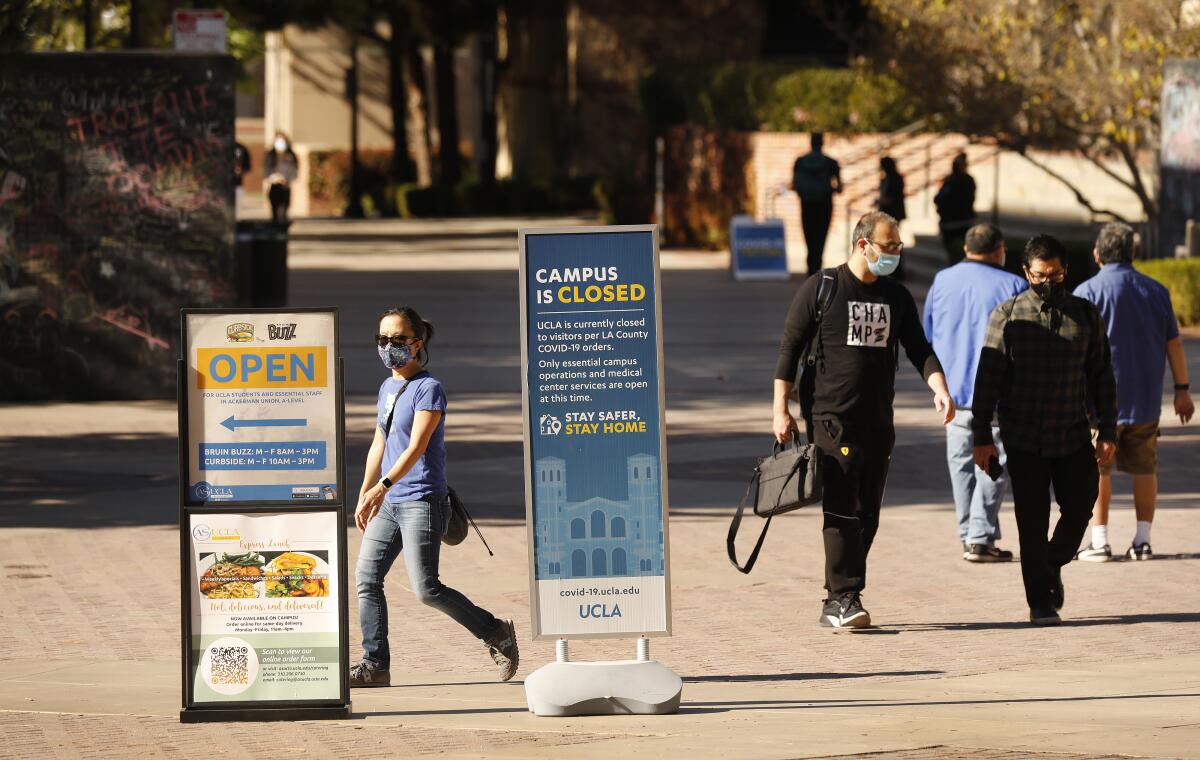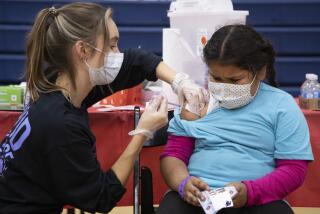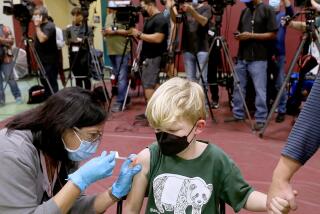Column: UC’s tough new policy on vaccinations is just what we need. No more begging and pleading

Are we serious about ending this pandemic or aren’t we?
With more than 600,000 people already dead of COVID-19 in the U.S., with the pace of vaccinations slowing and anti-vaxxers becoming more entrenched, virus infection numbers are creeping back up in California and around the country.
Do we want to go back to lockdowns and panic? If not, it’s time to stop begging and pleading with people to be vaccinated and instead toughen our rules and turn up the heat on those deluded, selfish or misinformed people who are unwilling to take that simple, science-backed step.
Two developments this week helped move us in that direction: the decision by Los Angeles County to reinstate its indoor mask rules for everyone, vaccinated or unvaccinated. And the order from the University of California that its students, faculty and other employees must be fully vaccinated before returning to campus for the fall term.
I get it that the mask mandate is disappointing and that it’s confusing for everyone and onerous for the restaurants, shops, offices and other businesses that have to enforce the rules. The situation is especially frustrating for those of us who have behaved responsibly and now are being lumped in with those who have chosen, for whatever reason, not to get vaccinated.
But there’s no alternative. If we can’t keep the virus numbers down through vaccinations, then we have to try to keep the numbers down by stopping transmission.
As for the new UC rules, they’re really much more important — an admirable show of strength and reasonableness in a country that can’t always be counted on for either. The University of California has more than 280,000 students and more than 227,000 faculty and staff members.
The rules not only will dramatically decrease COVID risks on campus but also will send a powerful message around the country that if we want to stop this virus in its tracks, we’re going to have to set different rules for those who are vaccinated and those who are not.
Let’s hope other big employers sit up and take notice. Some have said they prefer not to require vaccinations until they’ve been given full, final approval from the Food and Drug Administration, rather than just authorization for “emergency use.” But, as UC officials noted, substantial research has shown the vaccines to be safe and effective.
Here’s the broader situation we’re in. More than 150 million adults in the U.S. are now fully vaccinated, which has helped drive the rate of infection down dramatically. But others are refusing. Some are fearful, some are simply lazy. Increasingly, noted the Washington Post this week, what began as “hesitancy” among a subset of the population is hardening into a conservative political movement; to too many people, not getting vaccinated is a sign of strength, of independence, of resistance to liberal orthodoxy. Misinformation is rife.
The Post quoted Rep. Lauren Boebert (R-Colo.) telling a crowd at the recent Conservative Political Action Conference: “Don’t come knocking on my door with your Fauci Ouchie,” she said. “You leave us the hell alone.”
That’s an extremely dangerous, irresponsible message.
The slowing vaccination rate (combined with the reopening of the country and the spread of the Delta variant) are having the expected effect. Coronavirus cases in the U.S. have more than doubled during the last week, and deaths have risen 28%, almost entirely among unvaccinated people. More than a quarter of Americans say they are unlikely to get vaccinated — and that number appears to be rising.
In Los Angeles County, cases have nearly tripled, overwhelmingly among unvaccinated people. COVID-19 hospitalizations were at 223 on June 15 but had climbed to 452 as of Wednesday.
So bravo for the University of California. We need tough measures.
Look at what happened recently in France. President Emmanuel Macron announced Monday that proof of vaccination (or, alternately, a negative coronavirus test) would soon be required to access public events, movies, restaurants, airports and train stations. Within 48 hours, 2.2 million new appointments for vaccinations had been made.
That’s the power of “nudges,” as they’re known. Basically, France — like the UC system — is saying, “We’re not requiring you to get immunized; we’re just telling you that if you do, the world will be open to you.” Call it the “Fauci Ouchie” if you want, but if you haven’t had one, you shouldn’t have the right to congregate in places where you’re putting others at risk and potentially aiding the development of further variants.
In the United States, I suspect big employers will be particularly important in encouraging people to get vaccinated. Some, including Target and Petco, are choosing to do so by offering monetary incentives and other perks.
But the federal Equal Employment Opportunity Commission has said that nothing in federal law prohibits employers from requiring workers to be vaccinated before returning to the office, unless an employee has legitimate grounds not to be, such as a medical reason, a disability or a “sincerely held” religious objection.
No doubt there will be numerous lawsuits over such mandates. But what isn’t there a lawsuit about?
Already a New Mexico corrections officer has sued to challenge his employer’s right to tell him he has to be vaccinated to return to his job, as has a North Carolina deputy sheriff. Arguments against mandatory immunization often center on the fact that the FDA has not yet given its full official approval to the vaccines.
But, I say, bring those lawsuits on. We’ve gotten beyond the “please, please, please” begging stage. It’s time to turn up the heat.
More to Read
A cure for the common opinion
Get thought-provoking perspectives with our weekly newsletter.
You may occasionally receive promotional content from the Los Angeles Times.











